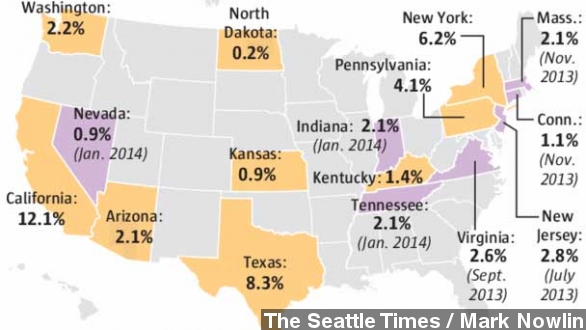While he might have captured shoppers' imaginations with plans to roll out a drone helicopter delivery service, Jeff Bezos and his company Amazon were also dealt a setback Monday in their ongoing battle over sales taxes.
"The Supreme Court declined to hear an appeal from Amazon and Overstock that would have potentially kept New Yorkers from paying state sales tax on online purchases." (Via NY1)
The two companies challenged a 2008 New York law that requires them to collect sales taxes even though they don't have a physical presence in the state. (Via CNET)
State courts had already ruled against the companies, saying while Amazon might not have had a physical presence, it partnered with plenty of paid affiliates who did. (Via The New York Times)
The case has been closely watched by business analysts, who say the court's ruling might eventually lead to online shopping being taxed at the same rate as brick-and-mortar stores.
"It is possible that other states will now have a road map. They can set up laws similar to New York's that Amazon objected to, and perhaps lower courts will uphold those laws as well." (Via Bloomberg)
For more than a decade, Amazon's ability to not collect sales tax in most states was seen as an unfair advantage over traditional stores. (Via WTVR)
"You see, online retailers don't always charge state sales tax, which often leaves it up to the customers to pay the state sales tax. And believe it or not, apparently a lot of us don't actually do that voluntarily." (Via Fox News)
One Congressional Research Service report says more than $11 billion in sales taxes went unpaid in 2012. That's a hole states are eager to fill.
For its part, the company has already agreed to collect sales tax in 16 states so far, including California and Texas. But it continues to fight against state-by-state initiatives like New York's, pushing instead for Congress to act on a national level.


